nuance
Latest

Microsoft completes its $19.7 billion purchase of voice-tech company Nuance
It closed the deal following approval from UK regulators.

Microsoft's $19.7 billion Nuance acquisition wins EU approval
The European Commission has approved Microsoft’s $19.7 billion bid to buy Nuance Communications.
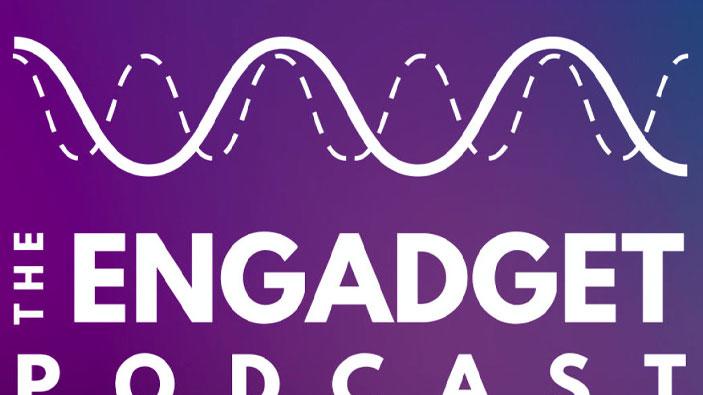
Engadget Podcast: Apple’s AirTags and, yes, the purple iPhone
This week, Cherlynn and Devindra chat with Engadget’s Chris Velazco about Apple’s AirTags and the new purple iPhone. We dive into what it’s like to use the AirTags to find things, and their potential limitations.
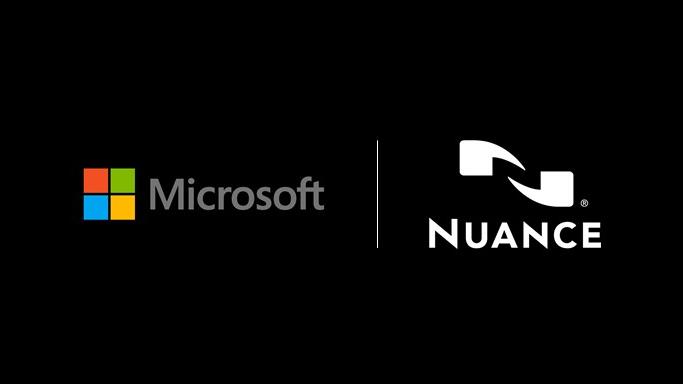
Microsoft will acquire speech-tech giant Nuance for $19.7 billion
Nuance already works with Microsoft on its Healthcare Cloud, now it'll be part of Microsoft's cloud business entirely.
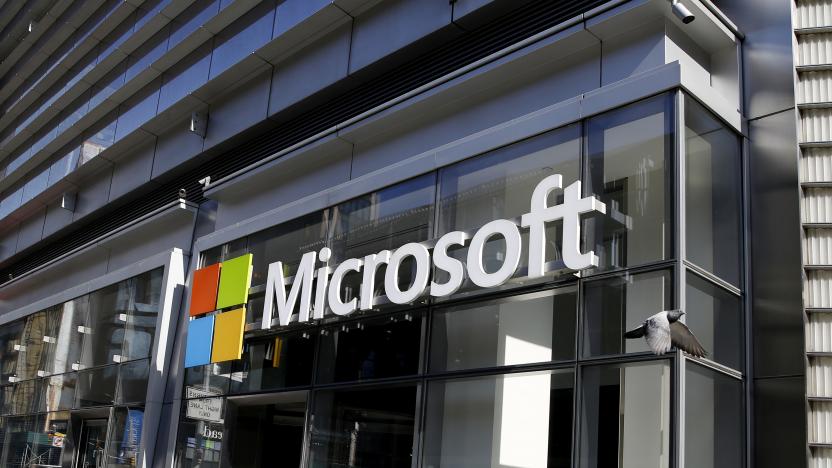
Microsoft is reportedly close to buying speech tech giant Nuance
Microsoft is reportedly in late talks to buy Nuance for $16 billion, giving it advantages in speech tech and AI.
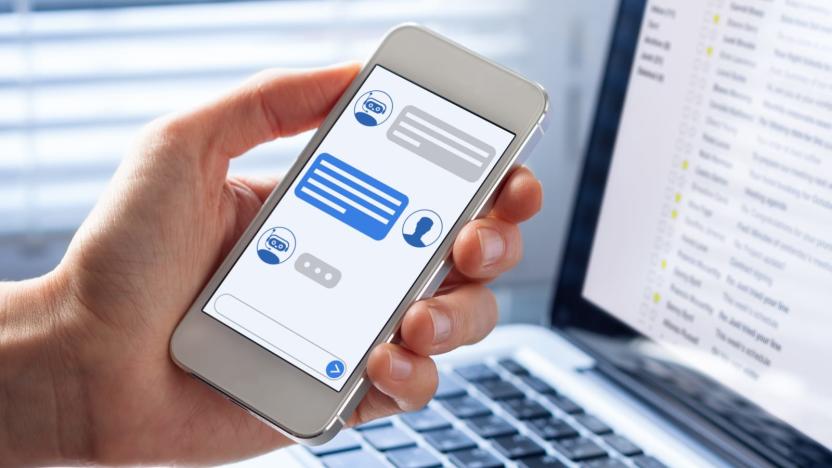
Nuance's AI uses real interactions to make chat bots smarter
Many high profile brands and companies have a customer service chat bot function on their website. Indeed, some research suggests that by 2020 conversational AI will be the main go-to for customer support in large organizations. But as the current technology stands, it's only as effective as the manual programming that's gone into its creation, and relies on the customer asking the right questions or including the right keywords to send the bot down the right branch of script. Today, though, Nuance Communication has announced a new technology that aims to make the conversational intelligence of chat bots a whole lot smarter.
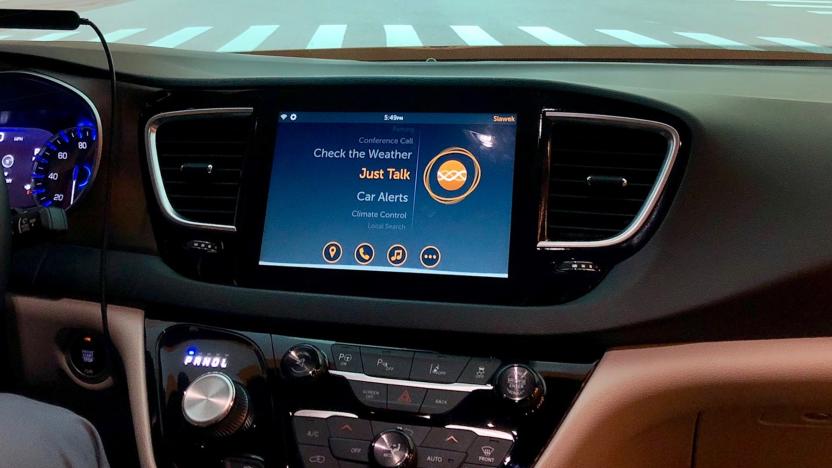
Soon you won’t need a wake word to talk to your car
Voice assistants typically need a little nudge to listen to your commands. From "Hey, Siri," to "Hello, Google," to "Alexa," they all need to hear something (called a wake word or phrase) before doing your bidding. It's the same in the car. With the MBUX system you have to say, "Hey, Mercedes," to get the car to listen to you. Nuance, the company behind MBUX and a whole host of other automaker voice-assistant systems wants to do better.
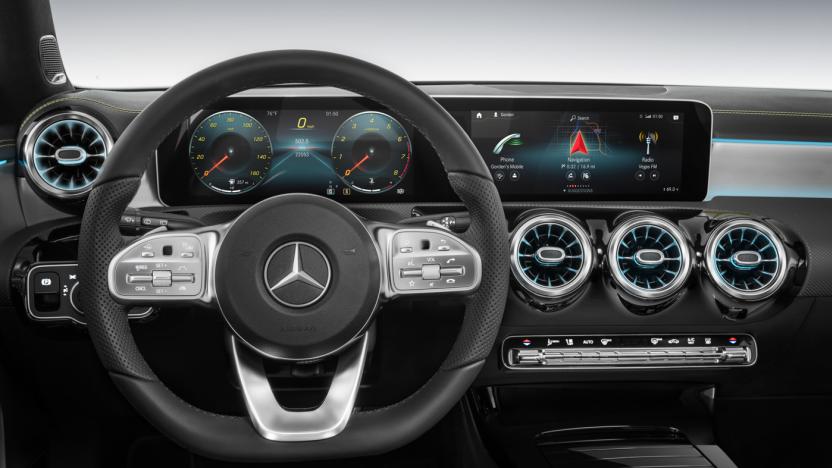
Mercedes goes all in with in-car natural-language control
Infotainment systems are a mixed bag. There are very few truly good ones, but even if an automaker can pull off a solid interface, it's mired by latency thanks to a slow processor. Typically these in-car systems usually aren't up to par with the offerings from Apple and Google. Mercedes is trying to change that with a new UX that's quick, voice controlled and may keep you from defaulting to Android Auto or CarPlay when you get in the car.
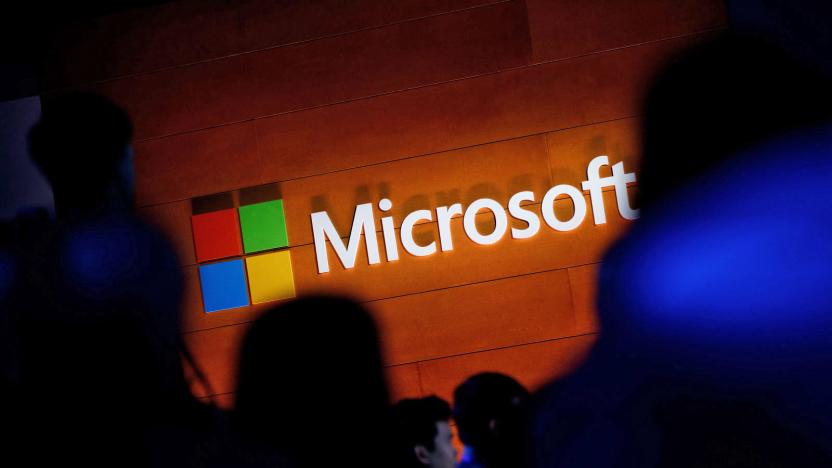
Microsoft improves Office's hands-free typing with Dictate
Microsoft has released a new app called Dictate. It's an add-in for Word, Outlook and Powerpoint and uses Cortana's speech-recognition technology to let you speak what you want to type.

Internet-connected toys accused of spying on kids
Smart toys can certainly inject some life into playtime, but they raise big privacy concerns when an internet connection is involved... and if you believe some critics, at least a few toys have crossed the line. Over 18 privacy groups are filing complaints with both the US' Federal Trade Commission and the European Union alleging that Genesis Toys and its tech partner Nuance are violating deceptive practices and privacy laws (including COPPA) through the way certain toys record kids' voices. Reportedly, i-Que and My Friend Cayla not only capture kids' voices without adequate notice or permission, but send it to Nuance with few safeguards over how that information is handled. It could be used in databases that Nuance sells to police and intelligence agencies, the groups say.

Barclays swaps passwords for voice IDs for telephone banking
Just as fingerprint sensors have made smartphones more useful and secure, voice-authentication tech is making the dreaded call to customer services that bit more convenient. Following TalkTalk and fellow bank HSBC's example, Barclays has also introduced voice identification to its telephone banking service in the UK. No stranger to biometrics, Barclays has been trialing voice recognition among a subset of customers for several years, only now making it available to anyone with a personal account.

TalkTalk's customer helpline now uses voice authentication
The days of digging out that grubby Post-it note with your telephone account password scrawled on are over for TalkTalk customers. From today, you'll only need your vocal cords to prove you are who you say you are. That's because TalkTalk has introduced biometric voice authentication on its customer services helpline, in what's said to be the first implementation in the UK outside of the financial industry.

Nuance brings the full power of Dragon voice recognition to mobile
Since the dawn of the iPhone, Nuance has been working on delivering the full capabilities of its Dragon NaturalySpeaking voice recognition software to mobile devices. That started with the company's technology lending a hand to iOS' dictation capabilities (Nuance still won't talk about how it's working with Apple), as well as launching a handful of Dragon apps, which handled some basic dictation and integration with Dragon's desktop software. But with the release of Dragon Anywhere this fall, Nuance will finally bring most of Dragon's desktop capabilities to the iPhone and Android. That includes fast voice recognition, unlimited dictation time (no putting off your self-published novel now), custom word inserts and a wide array of editing options all powered by Nuance's Dragon cloud service. Dragon Anywhere is basically built for people who already rely heavily on its desktop sibling. Nuance hasn't settled on pricing yet, but a rep says it'll likely be around $15 a month or $150 a year.

This Netherlands bank lets you use your voice as your password
Online banking is usually an exercise in remembering complicated pin numbers or passwords -- but what if there was an easier way? In the Netherlands, there is: banking customers who use the ING Netherlands app can now long into their bank account, check balances and make transfers using just their voice.

After Swype, HTC taps China's TouchPal for new Android keyboard
Tech-savvy users may have already come across TouchPal when trying different keyboards on Android and iOS 8 (and maybe even Windows 8), but it looks like a whole lot more people will be introduced to it soon. According to the Shanghai-based keyboard developer, HTC is replacing Nuance's Swype with TouchPal as its new default input engine on upcoming Android devices -- including the recently announced One M9 -- around the world (unless requested otherwise by operators). While HTC wouldn't officially comment on this, an internal source close to the matter verified TouchPal's announcement, though it didn't go into detail as to what prompted the move.

iOS 8 brings new 3rd party keyboards and Swype is one of the coolest
Users of iOS 8 no longer have to be happy with just the default Apple keyboard. Developers are now allowed to create keyboards with features Apple that doesn't provide, and we'll see a catalog of new keyboards now that iOS 8 is out. Dave Caolo reviewed one earlier today, so the flood of keyboards is starting to appear already. Today I'm going to take a look at Swype. Now, Android phones have had alternative keyboards for a long time, so Apple is playing a bit of catch-up here. Some established keyboard creators have already had plenty of experience in the world of Android and are now moving to the iOS platform. First off, why do you need a new keyboard? It's certainly not a requirement, but let's see what is on offer with Swype. The app was released today at a special price of US $0.99, has been on Android for 5 years and has been eagerly awaited by many iOS users. It's among the most popular and for good reason. You can use Swype like the standard Apple keyboard, tapping out words letter by letter, or you can swipe your fingers across the keyboard without lifting them (hence the name "Swype".) The software figures out what you are swiping and the word appears. The keyboard can also learn from experience, and start offering intelligent suggestions. You can also add words to Swype's dictionary and even create shortcuts. Punctuation can be gesture-based, and a standard set of marks and corresponding gestures is built in. The keyboard also offers next word predictions, and support for several languages including English, French, Italian, German and Spanish, with more languages coming soon. It should be noted that Apple's default iOS 8 keyboard now offers a feature called QuickType that also offers predictive typing. Keyboards also look better than ever, as Swype allows you to choose from any of 5 different themes to customize the keyboard. I think the dark themes are really attractive, and make the white letters and numbers easier to see than the standard Apple keyboard colors. "The keyboard is perhaps the most used feature on a phone, so it has to be intuitive, fast, and of course, it has to deliver incredibly high accuracy," said Aaron Sheedy, vice president of mobile solutions for the Mobile Division of Nuance. So how does it all work? Very well, actually. I've been playing with an advance copy for a few days and when you first use the Swype keyboard it can be a bit bewildering. There are some keys you won't recognize, but once you get started and explore how to use them they'll become familiar quickly. Swype comes with an app that installs the keyboard and also offers tutorials and tips. Of course, you can use Swype just like the regular Apple keyboard, but the unique features of Swype are sure to tempt you. One thing missing is the little key with the microphone icon that allows you to dictate text. Apple doesn't allow third parties to use that extension, a policy I hope will change. I think once you get used to Swype, it may be hard to go for you to go back to the Apple keyboard. Swype is now one of many keyboard options for iOS users, and we'll keep an eye on what's out there to help you choose what's right for you. Swype comes from Nuance, the folks that bring us the Dragon family of speech recognition apps. They also developed the technology behind Siri with Apple.
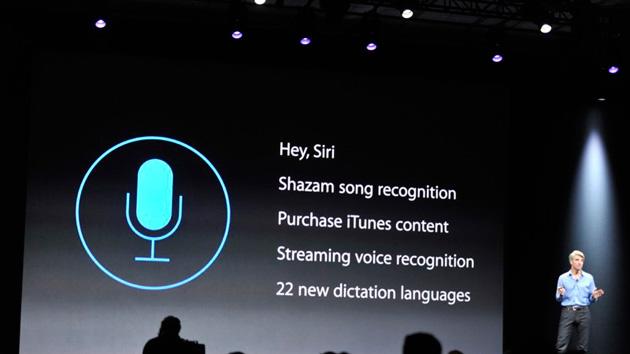
Siri may soon get a whole lot smarter
Siri undoubtedly experienced a number of growing pains upon release, but over time, Apple has done a great job of really boosting the service's speech recognition capabilities. In particular, dictation on iOS is as smooth and efficient as ever. Now comes word via Wired that Siri may soon be getting a whole lot smarter thanks to neural network algorithms Apple may implement thanks to an ever-growing team of artificial intelligence experts working on Siri. For instance, Apple last year hired Alex Acero from Microsoft where he spent the better part of two decades researching voice recognition technology. Wired further adds: Apple has also poached speech researchers from Nuance, including Siri Manager Gunnar Evermann. Another speech research hire: Arnab Ghoshal, a researcher from the University of Edinburgh. "Apple is not hiring only in the managerial level, but hiring also people on the team-leading level and the researcher level," says Abdel-rahman Mohamed, a postdoctoral researcher at the University of Toronto, who was courted by Apple. "They're building a very strong team for speech recognition research." Aside from enhanced speech recognition, it's worth pointing out that Siri with iOS 8 will be graced with a number of new features, including Shazam integration, 22 new dictation languages, and streaming voice recognition technology that types what you say as you say it. On a related note, there are long standing rumors which point to Apple working hard to develop its own speech recognition software instead of relying on Nuance's technology. Over the past few years, Apple has made quite a few notable hires in the space, including hiring a number of reputed speech recognition experts from Nuance itself. Lastly, it's worth nothing a recent Wall Street Journal article which claimed that Samsung might be interested in purchasing Nuance. Nuance currently has a market cap of $5.8 billion so any potential suitor would have to have extremely deep pockets.

SwiftKey, Swype and Fleksy are already making iOS 8 keyboards
When Apple revealed that iOS 8 would allow third-party keyboards, one big question came to many people's minds: would some of the better-known Android keyboards make the leap? In short, yes. SwiftKey says it has "already started" porting its heavily customizable software to iOS; Swype tells Engadget that it "can't wait" to support Apple's platform. Fleksy, meanwhile, is going so far as to take sign-ups for a beta program and vows to be "one of the first" with a solution. The odds aren't high that you'll get something like Google Keyboard on your iPhone (we've asked to be sure), but you won't be hurting for input methods when iOS 8 is ready this fall.

Tell Gmail what to do with the latest Dragon Dictate for Mac
Let's face it: not everyone uses Nuance's Dragon Dictate software to power a ridiculously automated dorm room, the less creative among us have had to get by using it to take notes or write term papers. No matter what you do with it, however, you might appreciate that the latest Mac version of the app lets you use your mouth instead of your fingers to write emails and navigate your inbox -- so long as you're using Firefox or Safari to access Gmail. You can tell Mac's word processor, Pages, what to do too. Beyond that, Dictate will also transcribe single-speaker recordings either from a smartphone or digital voice recorder now (including .mp3 and .wav files), and, what's more, it apparently boasts improved voice recognition accuracy. The suite is $200 directly from the developer should you want to give your hands a rest, or perhaps you just really like hearing the sound of your own voice.

Nuance's next-generation Dragon Assistant wants to have a conversation
Remember that partnership Intel and Nuance penned way back when? The fruits of their labor is finally here: Nuance's next-generation Dragon Assistant. The virtual assistant is designed specifically for Intel RealSense technology, and comes with two default personalities: American female or British Butler. The assistant does the normal voice recognition tasks, of course, but Nuance is particularly proud of the program's conversational skills. Asking the virtual Alfred (yes, we prefer British Butlers, it's true) who directed Pulp Fiction, for instance, produces the correct answer: "Quentin Tarantino," but Dragon will also remember you asked that, putting follow up questions (such as, "Hey, who was in that movie?") into the proper context. "This latest version of Dragon Assistant is transformative," Nuance Mobile Vice President Michael Thompson wrote in the company's press release. "People can have an interactive dialogue that is natural and intuitive, with a voice assistant that listens and understand the context of the conversation." Neat. Best of all, the new assistant is available today in devices from Acer, Dell, HP Lenovo and more, in Ultrabooks, notebooks and all-in-one PCs. Asus and Toshiba a will follow early this year, and Lenovo will pack the assistant into a tablet sometime in the next few months. Looking for more details? Check out the company's official announcement at the source link below.












